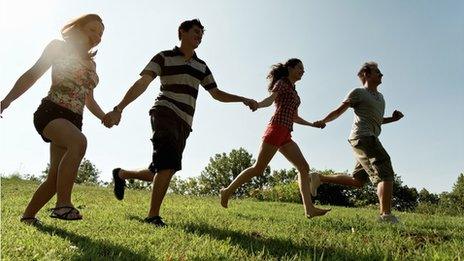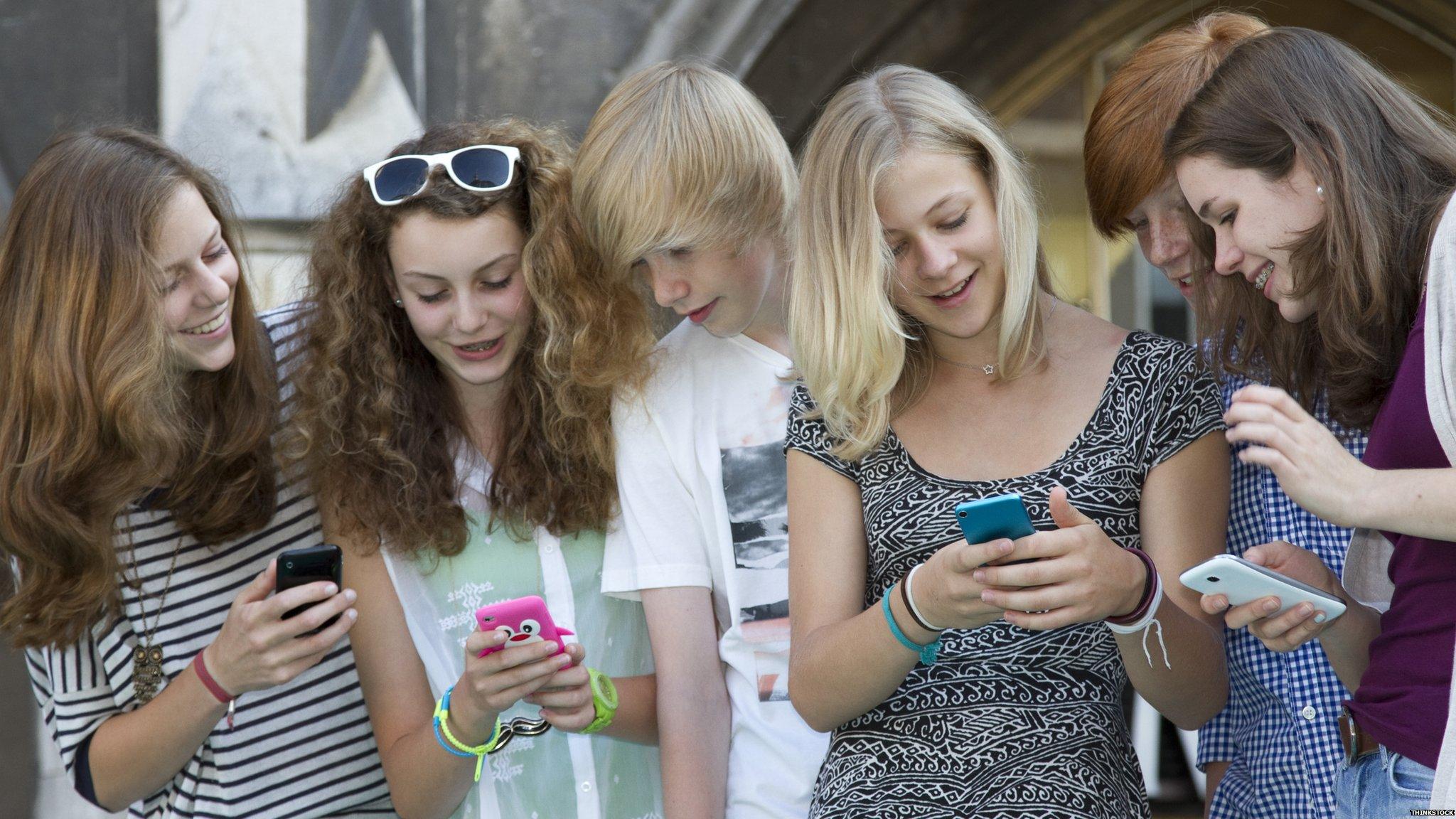Puberty calorie burn fall 'could explain obesity rise'
- Published

Everyone burns calories when resting, but during puberty teenagers burn off less energy
A sharp drop in calories burned off while resting during adolescence could be contributing to the rise in obesity.
A study in the International Journal of Obesity found energy used at rest was 25% lower in 15-year-olds compared with when they were 10 - a fall of 500 calories a day.
This is equivalent to cutting out an hour's strenuous exercise every day.
The study said the findings were unexpected but could help explain why a lot of teenagers put on excess weight.
Most of the energy people burn is just to keep their bodies ticking over - using the brain, heart, liver and kidneys - rather than through physical activity.
In a decade-long study following 279 children, researchers from the University of Exeter Medical School were surprised to find the number of calories the children burned at rest fell sharply during puberty.
Exercise drop
This is a period of rapid growth, which usually uses up lots of calories, but it was only around the age of 16 that the number of calories burned at rest started to rise again.
During puberty there was also a noticeable drop in physical exercise, particularly among girls, which could add to weight gain, the researchers said.

About a third of school children aged 10-11 in England are overweight or obese.
Prof Terry Wilkin, from the University of Exeter Medical School, said: "Child obesity and associated diabetes are both among the greatest health challenges of our time.
"Our findings can explain why teenagers gain excess weight in puberty, and it could help target strategies accordingly."
Junk food
Prof Simon Capewell, vice-president of the Faculty of Public Health, said the findings showed there was an even greater need to improve children's diets and protect them from junk food and sugary drinks.
"Adolescents sitting around using their smartphones and iPads are being bombarded with junk food marketing - while using even fewer calories than we previously thought.
"Last month's government strategy on childhood obesity confirmed the duty on sugary drinks, but was otherwise a disastrous missed opportunity.
"We need much tougher regulation around the marketing of junk food to children - particularly on TV and online."
- Published25 March 2014

- Published18 June 2015

- Published11 June 2010